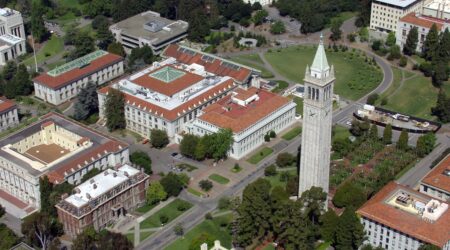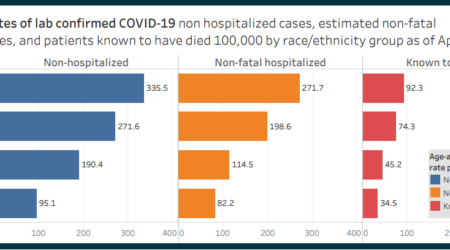Social Science Matrix is proud to announce that seven new Matrix Research Teams have been selected to receive support during the 2020-2021 academic year. Matrix Research Teams are groups of scholars who gather regularly to explore or develop a novel question of significance in the social sciences. Matrix teams typically integrate participants from several social-science disciplines and diverse ranks (i.e. faculty and graduate students), address a compelling research question with real-world significance, and deploy or develop appropriate methodologies in creative ways.
“Matrix is delighted to announce the Research Team awardees for the 2020-2021 academic year,” says Michael Watts, Emeritus “Class of 1963” Professor of Geography and Development Studies at UC Berkeley and Acting Director of Matrix. “As in past years, the application process produced a raft of exceptionally high quality and innovative projects that made the task of the selection committee especially difficult. The funded Matrix Research Teams reflect the very best of UC Berkeley’s cross-disciplinary and critical social science, speaking to our most pressing intellectual, theoretical, and social challenges. Social Science Matrix looks forward to working with all of these groups over the course of the next twelve months.”
Matrix supports two different kinds of teams: Project teams receive funding in the amount of $5000. Prospecting teams receive funding in the amount of $1500. Matrix Research Teams additionally receive communications and administration support, and may have access to space in the Matrix space at the top of Barrows Hall, as allowed by campus policy during the COVID-19 pandemic.
This year’s teams were chosen following review by a cross-disciplinary panel of faculty members. Below are abstracts describing the 2020-2021 Matrix Research Teams, written by the teams’ organizers.
Project Teams
Community Cooperation and the Police in Comparative Perspective
Team Leaders: Aila Matanock, Associate Professor, Department of Political Science; Dan Lindheim, Faculty Director, Center on Civility & Democratic Engagement; Leo Arriola, Associate Professor, Department of Political Science, Director of the Center for African Studies Groups
A fundamental role of the state is to provide security and order, and the police are the consummate street-level bureaucrat serving to provide these functions, but their success fundamentally relies on earning the trust and cooperation from citizens. We explore how positive relationships between citizens and the police are built. We examine existing work on community relationships and the police in the United States and, especially, across developing countries; in both contexts, we look at traditional policing and crime as well as nontraditional enforcement on countering insurgency and enforcing quarantines. We propose to reanalyze studies across context to see what they suggest in aggregate; to explore short case studies on moments of change in policing structures to understand variation in citizens’ trust and cooperation with the police from developing countries; and, finally, to generate new collaborative work where existing literature has left gaps in our understanding of these dynamics.
Psychology & Economics of Poverty
Team Leaders: Mahesh Srinivasan, Associate Professor, Department of Psychology; Supreet Kaur, Assistant Professor, Department of Economics
The Psychology and Economics of Poverty (PEP) Initiative represents a new research agenda exploring the cognitive and behavioral effects of poverty, by cultivating a tight-knit community of development economists, cognitive and social psychologists, and other scientists working on poverty reduction. The initiative will strengthen a nascent community of practice by: coordinating cross-disciplinary lab meetings and a reading group with faculty and students from UC Berkeley, other UCs, Stanford University, and additional West Coast universities; an annual international conference focusing attention on how poverty interacts with cognition, brain development, behavior, and human welfare; and supporting exploratory and pilot research as well as larger-scale empirical research studies proposed by members of the community to pursue new lines of inquiry. The ultimate goal of the PEP initiative is to drive original interdisciplinary research on how poverty affects cognition, health, and well-being, toward the end of positively influencing social and economic development programming on a large scale. Insights from the PEP initiative have the potential to help both the public and private sectors with designing and targeting interventions that effectively increase welfare for the world’s poor.
Prospecting Teams
The Asian City: New Models of City-Making
Team Leaders: Meiqing Li, PhD Student, City and Regional Planning; Jolene Lee, PhD Student, Architecture; Liubing Xie, PhD Student, City and Regional Planning
Driven by convergent and disparate forces of governance and capital markets, the contemporary Asian city represents a new model that differs from those in the Anglo-American or European planning traditions. Beyond a site of engagement with capitalism or postcolonialism, Asian cities are nodes of specific local, regional, and national articulations in the pursuit of globality. The ‘Asian city’ thus requires a reflexivity of interdisciplinary fields to situate inter-city comparisons, references, and models. The workshop and seminar series will bring together faculty, researchers, and graduate students from multiple disciplines in humanity and social science, to study a variety of contemporary cases in Asia. We believe that an Asian perspective will not only inform urban studies research and planning practice, but also help shed light on how the unresolved tensions and friction between cultural norms and values and the various scales of governance impact the processes of city-making and remaking amidst current global crises.
COVID-19 & Natural Resources
Team Leader: Stephanie Postar, Ciriacy-Wantrup Postdoctoral Fellow in Natural Resource Economics and Political Economy, Department of Geography
“COVID and Natural Resources” examines how the 2020 coronavirus pandemic interrupted the ways minerals, oil, and gas are mined, processed, circulated, and consumed. Gold prices, unsurprisingly, rose with the number of the sick, while the unthinkable — a negative price for oil on the West Texas Intermediate on April 20 — made international news, raising panic about American jobs and the overall state of the U.S. economy. However, economic and geopolitical analyses of resource prices and market trends leave us with incomplete understandings about how the pandemic continues to impact the people and communities who rely on natural resources for their livelihoods and bear the environmental impact of resource exploitation. We aim to bring to broader audiences more grounded stories of how the virus impacts people’s lives via the resources they extract and acquire. On-the-ground fieldwork is either not possible or limited; despite this constraint, sharing the stories of how coronavirus impacted everyday life along resource commodity chains will be necessary to bring into focus how marginalized workers and their communities are weathering these uncertain times. We will convene two workshops as part of the project: the first to support each other in strategizing how to collect data during the pandemic; the second to provide critical feedback on material for publication. This project will produce a series of blog posts for the general public and a special collection as part of an academic journal.
Critical University Studies
Caleb Dawson, PhD Student, Graduate School of Education; Juliet Kunkel, PhD Student, Graduate School of Education; Alice Taylor, PhD Student, Graduate School of Education; Nicole Rangel, Independent Scholar, UCB alumna; Rachel Roberson, PhD Student, Graduate School of Education; David Maldonado, PhD Student, Graduate School of Education
A scholarly community led by graduate students, Critical University Studies (CUS) seeks to: 1) deepen our theoretical inquiry of critical studies of higher education and develop theoretical and empirical connections with critical studies of race, gender, and class. We draw inspiration from the black radical tradition, black feminism, indigenous studies, and decolonial theory. Next, we seek to 2) strengthen our methodological approaches in order to conduct ethical and rigorous research. To this extent, we reflect on our own positionalities, and encourage non-traditional modes of knowledge production and participatory approaches. Lastly, we 3) cultivate community that supports graduate students at UC Berkeley through milestones and degree completion and create a network of faculty and graduate scholars beyond Berkeley. We aim to accomplish this goal through fostering connections among scholars at UC Berkeley and other institutions in the U.S. and transnationally.
Data Feminism(s): Troubling data and power in our backyard and elsewhere
Team Leaders: Gauthami Penakalapati, PhD student, Energy Research Group, with a Designated Emphasis in Gender and Women’s Studies; Elizabeth Resor, PhD student, School of Information
The present pandemic is highlighting how gender and racial disparities in labor and health impacts one’s exposure and susceptibility to COVID. Now, we’re furiously collecting as much data as possible. But once we have this data, what becomes of it? Disaggregating data and ensuring representative samples are important statistical practices, but what material results do these data encourage in individuals’ lived experiences? We can look beyond COVID into global development work as well. Technologies after technologies have been deployed to better women’s health, but inequities remain, illustrating that problems lie in social systems as well as technical ones. Our interdisciplinary team aims to dissect how research questions, data tools, and data collection can reinforce and even exacerbate inequitable situations. Using feminist, decolonial, and critical theory, we also explore best practices, new ways of data collection, new strategies for sharing results with research participants and partners, and methods to practice reflexivity.
Post-Imperial Oceans
Team Leader: Sharad Chari, Associate Professor, Department of Geography
Despite recognition of human reliance on the world ocean, we live in a world of oceanic fragments splintered by legacies of past and present imperial processes. The Post-imperial Oceanics working group thinks across the fragmented aftermaths of oceanic imperial processes, drawing from historical and geographic work on the ocean world, as well as from the environmental humanities. Including graduate students, postdoctoral scholars, and scholars connected to Berkeley Geography, this working group connects scholarship across topics, including race and migration across the Black Mediterranean and the Black Pacific, the intellectual world of British imperial seafaring, South Asian energy geopolitics, the colonial Indian Ocean oil sardine fishery, U.S. imperialism in the Arctic, Australian botanical science, the blue economy in the Southern African Indian Ocean, sharks in the Middle Passage, and other oceanic questions. We meet for rotating discussions and will be linked to a workshop on post-imperial oceans.



